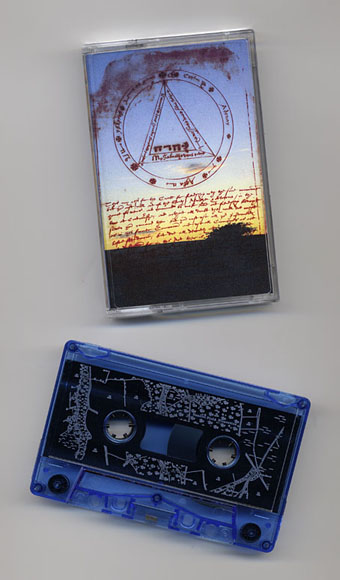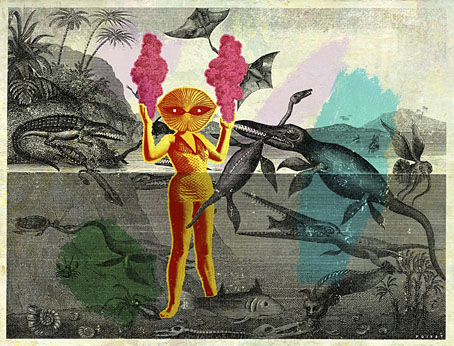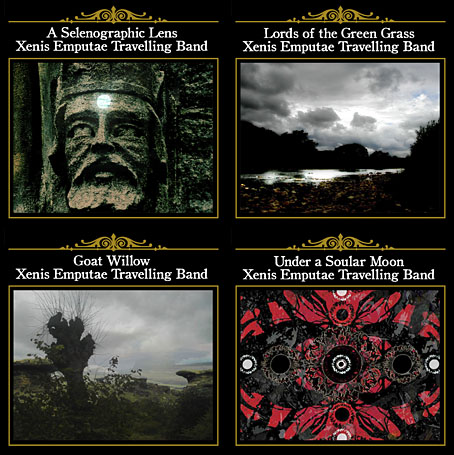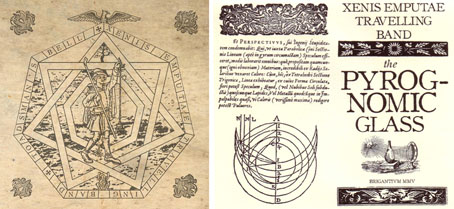Three Spirits by Xenis Emputae Travelling Band.
Looks like I was premature in 2008 when I was eagerly contemplating the demise of the cassette tape as a music format. Earlier this year I bought a music cassette for the first time since the early 1980s, albeit inadvertently since this was the compilation that came with The Twilight Language of Nigel Kneale (more about that at a later date). This week Phil Legard of Xenis Emputae Travelling Band very generously sent a copy of his latest release, Three Spirits, which is another cassette edition. And to top things off, FACT magazine this week launched a review section for new cassette releases. So much for the format being moribund.
I have to admit my anti-cassette animus has largely dissipated now there’s no reason to rely on them for anything. And I did hang on to my cassette deck… Switching that on for the first time in years and pressing “play” was a considerable novelty, as was the inevitable tape hiss that’s absent from most contemporary releases unless your name is Pye Corner Audio. The resurgence of the format is both interesting and understandable: interesting for its being another example of the way the future never unfolds in a predictable manner; understandable because cassettes are relatively cheap to produce, and there’s still a very evident market for material, analogue artefacts. And the novelty is present, of course, for people young enough to miss out on the delight of friends’ cheap tape machines chewing their lovingly-crafted compilations.
As to Three Spirits, it’s an excellent release, two sides of sublime atmospheres which at times sound like a local equivalent of Popol Vuh. I’ll be playing this one a lot. Phil writes about the music here, and there’s also a video for one of the tracks.
Previously on { feuilleton }
• Xenis Emputae Travelling Band
• Old music and old technology





